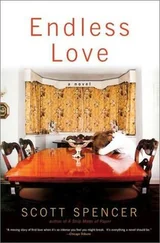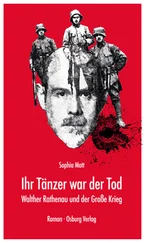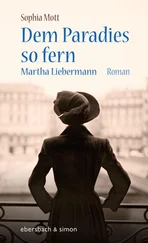As Susan announces this, the tour, with Marie at the head ofit, begins down the stairs.The force ofthe collective footsteps is so great that a faint cloud ofplaster fills the sunlight that pours into the entrance hall.
“Next,”Marie is saying,“we’ll go down to the house’s original cellar, which was part ofthe famous Underground Railroad, in the years pre-ceding and during theAmerican CivilWar.”The strain and the excite-ment ofconducting this tour seem to be exacting their price.Marie’s voice has become a little shrill, and she gestures wildly, as ifwaving away a swarm ofgnats.“We envision this as one ofthe highlights ofthe tour.
Right now, you’ll have to use your imagination, but when we have every-thing set up it will be a sort ofdiorama ofthe period, with lifelike fig-ures ofslaves.”She turns to face the guests and suddenly loses her footing.Ethan Greenblatt, who is directly behind her, manages to catch her by the jacket—ifit weren’t for him Marie would be in a heap at the bottom ofthe stairs.
“She’s not above a lawsuit,”Susan says to Kate.Then, to Daniel:
“Don’t mention anything to Marie about our stopping this ridiculous project ofhers.I’ll tell her myself, it seems only fair.”
Marie is rattled by her near fall, but she continues with the tour, bringing the guests down to the ground floor, turning left in the entrance hall and leading them all through the conservatory, the dining room, the main kitchen, and then the summer kitchen, where the door to the cel-lar can be found.
Iris and Hampton walk through the entrance hall, followed by Ruby and Nelson.When Ruby sees Kate and Daniel, she calls out to them with her customary exuberance.“You’re missing it, you guys.Come on, we’re going down to see where the slaves hid.”She holds her hand out.
“Let’s take a look,”Daniel says to Kate, taking Ruby’s hand.
Ferguson has seen to it that the cellar is well lit for today’s party—
there are standing and clip-on lamps every few feet—but he has not been able to dispel the dank gloominess ofthe place.With its packed dirt floor and thick, fabriclike cobwebs, it seems more like a cave than a part of someone’s house.It smells ofrain and mold.Strips ofpink fiberglass in-sulation hang from the ceiling.Generations ofbroken wooden chairs line the walls, awaiting repair.In fact, the entire place is a terminal ward for stricken furniture, some ofit too valuable to dispose of, some saved for no apparent reason.Old leather chairs ooze cotton, dozens ofold oak chairs stand along the wall with their cane seats torn, unraveled, or miss-ing altogether.There is a small QueenAnne sofa upon which someone seems to have poured white paint.There’s a rolltop desk missing all ofits drawers, and with one ofits legs replaced by an unpainted two-by-four.
There are skis, tennis racquets, a croquet set, sleeping bags, a punching bag covered in dust hanging from a beam.There seem to be literally hun-dreds ofpaint cans, some without their tops appear to be empty, others seem brand-new.There are at least twenty large cartons ofchina, a dozen rolled-up rugs secured with twine and stood up on their ends, drooping and leaning into each other like a family ofdrunks.In a corner, someone has abandoned an old, elaborate model train set, its tracks ravaged, its cars toppled, its miniature landscape oftrees, cows, and water towers scattered—it looks like the transportation system ofa country that has lost a long, ruinous war.
At the north end ofthe old cellar is a cast-iron coal-burning furnace, unused for decades.Some twenty feet to the side ofthe furnace, the dirt and stone wall is paneled over with wide wooden planks, newly painted white.Marie stumbles for a moment on her way to the wall, and then when she reaches it she rests her hand on it.“Is everybody watching?”she calls out.
She spreads her small hand out as far as her fingers will reach, and then, applying pressure, slides a false panel in the wall over a few inches.
Then she grabs hold ofthe edge ofthe opened panel and drags it further to the side, revealing a vast, dark emptiness.
“This is where the runaway slaves were kept,”she calls out.“Sometimes there’d be just one or two ofthem, sometimes as many as ten.
Then, when the coast was clear, they’d get herded out and sent on their way—to Canada, mostly.Where they’d be free.The great thing about this space is that the temperature is always sixty degrees, winter and summer, as is true with many ofthe rooms in Eight Chimneys.”
Marie goes on for a while longer, telling everyone aboutWendell Richmond, who was the master ofthe house from1820to1882,and about the escaped slave who gave birth to a child in this cellar, and about the artifacts ofthat time that have recently been recovered—the little tin earrings, the diary filled with sketches oftrees, fields, and other fleeing slaves, the un-explained human teeth.Then, finally, she steps into the old cloister and feels in the air for the lamp that has been set up—she has never looked more like a blind girl than at this moment, groping for the switch with al-most spastic waves, like a kid pretending to have lost her sight.
The light comes on, revealing two mannequins that Ferguson got from the Fashion Bug at theWindsor Mall.One ofthem is dressed in overalls and a straw hat, the other in an old gingham dress, and both of them have been freshly painted brown.Ten by ten, the guests walk into the secreted room, have a look, and presumably imagine themselves hid-ing and hungry in such a place.It smells ofmud that has been there for-ever, and the paint that only yesterday was sprayed on the mannequins’ faces.When Daniel crowds in to look around for himself, Kate, refusing to be a part ofthe tour’s grand finale, has already left, and when he feels the tip ofa finger against his backbone, Daniel’s heart quickens:he knows it is Iris’s touch.He takes a deep breath and feels it again.It is just one fin-ger, a circumspect gesture, a child’s, a prisoner’s, but the force ofher fin-gertip stirs his blood.Then it is time for them all to turn around and let the next wave ofguests come in to look at what is, after all, just a storage room in the cellar ofan old house.When Daniel faces the other direction, he is behind Iris and Hampton, Nelson and Ruby.He could return the se-cret little touch, but he doesn’t dare.He doesn’t trust his hand;it is not inconceivable that once he touches her he will not be able to stop.
Upstairs in the ballroom, the party has become more animated.The guests, released now from the dutiful march through the house and its claustrophobic conclusion in the cellar’s secret room, and further re-leased from the slightly hectoring quality ofMarie’s voice, are gossiping and joking with each other in increasingly excited voices.Daniel is look-ing to see where Kate is now and finally sees her across the room, stand-ing with Derek, whose face is very close to hers and who is speaking to her with what appears to be great seriousness.Daniel sees Iris, too;she’s talking with Ethan Greenblatt.Then he sees Susan with Marie.Susan is holding Marie by the upper arm and seems to be scolding her.Marie tries to yank her arm away but Susan’s grip is too strong.She continues to speak to Marie, with a rather cruel, powerful smile on her face, and suddenly Marie breaks free.
Marie leaves the ballroom and heads straight out ofthe house, without so much as a jacket or a sweater.Seeing this gives Daniel a small jolt ofconcern, but before he can give it much more thought, Daniel is set upon by Upton Douglas, who swings his way over on his crutches, accompanied by a willowy middle-aged woman with an elegantly un-happy face, a widow from Buffalo, to whom Douglas has been showing houses in the area.Upton wants Daniel to talk to her about how grand it is to live in Leyden, its beauty, and convenience, its friendly atmo-sphere and myriad cultural events, and Daniel is trapped in this seem-ingly endless conversation.
Читать дальше












